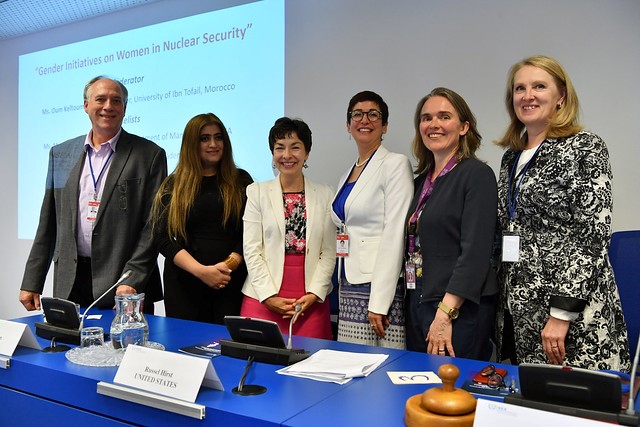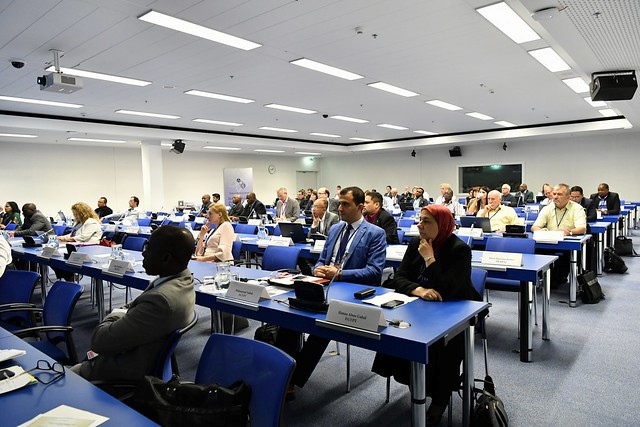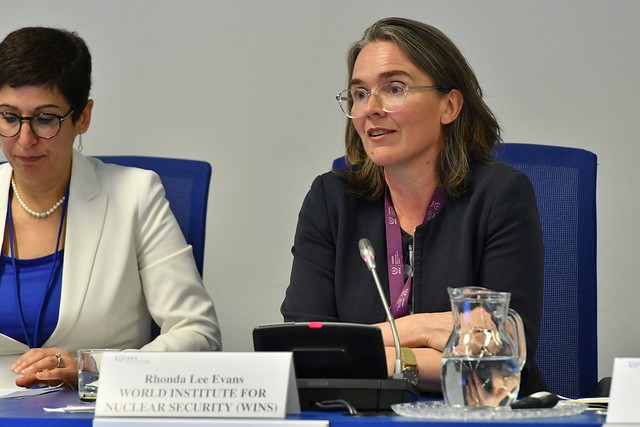Rhonda Evans, Head of the WINS Academy, participated as a panelist in a discussion that took place during the Annual Meeting of the International Nuclear Security Education Network (INSEN).
Held in Vienna, Austria, from 8 to 12 July 2019, the meeting gathered nearly 100 participants from 50 States. For the fourth year, it also featured a panel discussion on the role women currently play and should play in nuclear security.

Additional panelists included Mr. Russel Hirst, Professor, University of Tennessee-Knoxville, USA; Ms. Maria Sultan, Director, SASSI, Pakistan; Ms. Mary Alice Hayward, IAEA Deputy Director General and Head of the Department of Management; moderator Dr Oum Keltoum Hakam, Professor, University of Ibn Tofail, Morocco; and Ms. Elena Sokova, Director, VCDNP.
Many panelists emphasised the importance of education and certified training to ensure professional recognition of women in the field. They agreed that one of the most common barriers to women in the fields of nuclear science, technology, security, safety and policy is the stereotype that women do not have the appropriate educational and training background to enter such fields.
In her presentation, Ms Evans highlighted the WINS Gender Champions Programme, funded by the governments of Canada and Norway. She explained that the programme makes a key contribution to overcoming this barrier because it helps women bridge the training gap and demonstrate their competence in nuclear security.
‘Under-representation of women in nuclear sciences and nuclear security deprives the world of the creative problem-solving that women bring to the table,’ said Dr Hakam. ‘With the issues we are facing, we cannot afford to forego 50 percent of the world’s talent.’
Ms Evans added that ‘It is not about fixing the women. It is about fixing the system that excludes them from greater participation in this important field.’



